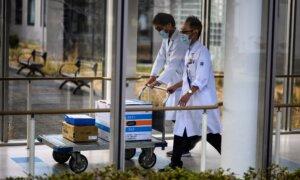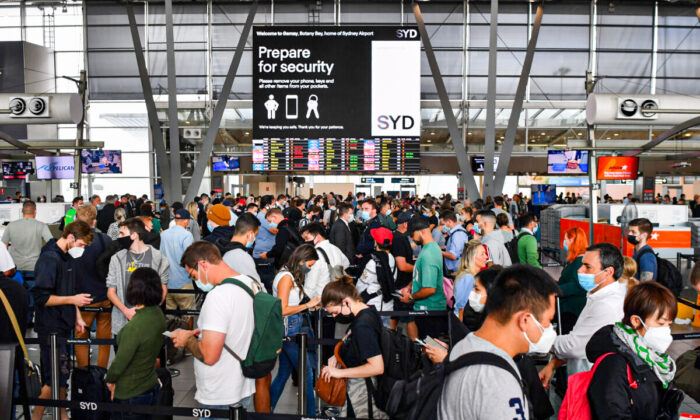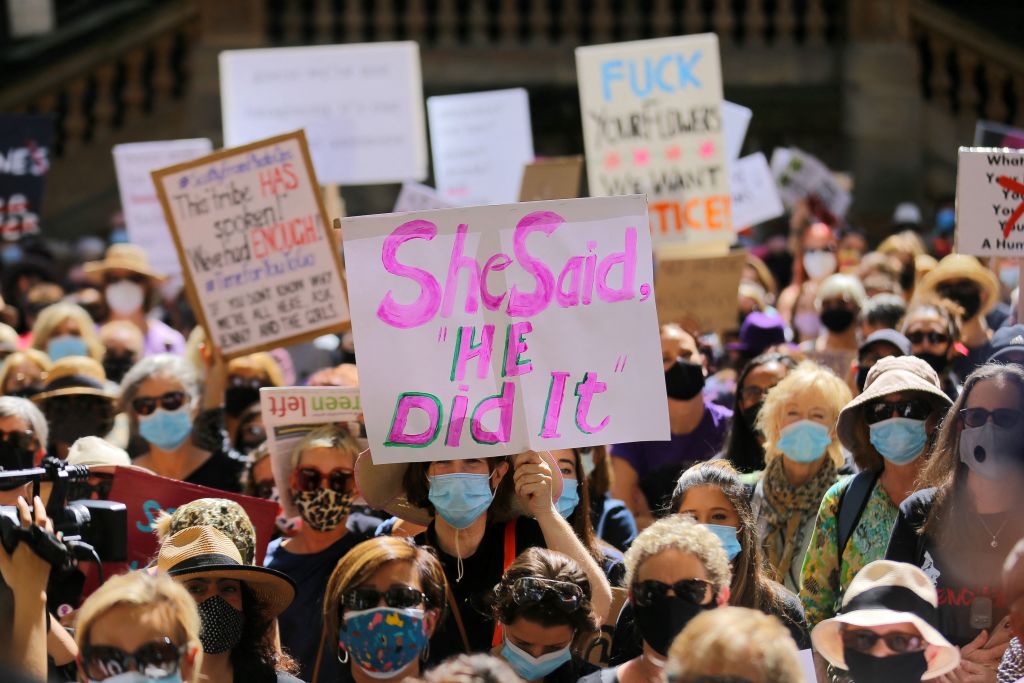Six health care workers reported suffering negative adverse effects after previously taking COVID-19 shots in the report.
Approximately half of the health care workers in a Polish study were found to be averse to taking COVID-19 booster shots, with one of the reasons for this hesitancy being their negative experiences with previous vaccinations.
The peer-reviewed study, published in the Vaccines journal on April 29, examined factors underlying “hesitancy to receive COVID-19 booster vaccine doses” among health care workers (HCW) in Poland. Almost 50 percent of the participants were identified as being wary of the boosters. “Our study found that 42 percent of the HCWs were hesitant about the second booster dose, while 7 percent reported no intent to get vaccinated with any additional doses.”
“As reasons for not vaccinating, participants most frequently highlighted lack of time, negative experiences with previous vaccinations, and immunity conferred by past infections.”
The study involved 69 healthcare workers composed of nurses, midwives, physicians, other health associate professionals, and administrative staff.
At the time of enrollment, 47 had a history of lab-confirmed COVID-19 infection and 31 had at least one comorbidity, a situation where a person suffers from more than one disease or medical condition at the same time.
Over 92 percent of study participants received at least one vaccine booster, with 50.73 percent getting two doses. Five out of the 69 HCWs did not take any boosters.
“Booster hesitancy among health professionals (physicians, nurses, and midwives) was lower than among administrative staff and others. Almost 79 percent of the physicians had received two COVID-19 vaccine booster doses. However, apart from physicians, about half of the HCWs from each occupation group were hesitant about the second booster dose.”
“The highest number of HCWs without any vaccine boosters was observed among administration personnel.”
HCWs in the age groups of 31-40 and 41-50 were found to be the most skeptical about taking the second booster shot. Thirty-four out of the 69 HCWs provided reasons for their COVID-19 booster vaccine hesitancy.
Two of the health care workers who did not take booster shots said their decision was based on their personal experience with the vaccines.
“They reported negative experiences with past COVID-19 vaccination and stated that the natural immunity developed after SARS-CoV-2 infection could protect them against COVID-19, which, overall, does not pose serious health risks,” the study said.
“Responses from HCWs who received only one COVID-19 booster dose can be categorized into two themes: (i) influences arising from personal perceptions of the COVID-19 vaccine and disease prevention and (ii) issues directly related to vaccination and its safety.”
Six health care workers reported suffering negative adverse effects after previously taking COVID shots. Four had safety concerns about the vaccines.
In an earlier study conducted by the researchers, COVID-19 antibody levels among HCWs after receiving the mandatory primary vaccine series were found to have decreased by around 90 to 95 percent within seven months of vaccination. However, “none of the HCWs contracted COVID-19,” it said.
The current study was funded by the Institute of Bioorganic Chemistry Polish Academy of Sciences. The authors of the study reported no conflicts of interest.
Vaccine Concerns, Harms
Other studies have also explored vaccine hesitancy among health care workers. A March 2023 study that looked at HCWs from Cameroon and Nigeria found that COVID-19 vaccine hesitancy was “high and broadly determined by the perceived risk of COVID-19 and COVID-19 vaccines on personal health, mistrust in COVID-19 vaccines, and uncertainty about colleagues’ vaccine acceptability.”
An April 2022 study found that “a concern for vaccine side effects” and “the belief that the vaccines are inadequately studied” were some of the key reasons for vaccine hesitancy among health care workers.
A May 2022 analysis at BMJ Global Health warned that indulging in policies like mandatory vaccination “may cause more harm than good.”
“Current mandatory vaccine policies are scientifically questionable and are likely to cause more societal harm than good,” it said.
“Current policies may lead to a widening of health and economic inequalities, detrimental long-term impacts on trust in government and scientific institutions, and reduce the uptake of future public health measures, including COVID-19 vaccines as well as routine immunizations.”
The analysis recommended that vaccines should only be mandated “sparingly and carefully to uphold ethical norms and trust in institutions.”
During Sen. Ron Johnson’s (R-Wis.) roundtable discussion on COVID-19 vaccines on Feb. 26, researcher Raphael Lataster, associate lecturer at the University of Sydney, claimed that data from Pfizer and Moderna COVID-19 vaccine clinical trials exaggerated the efficacy of the shots.
The data exaggeration could make an ineffective vaccine have a perceived effectiveness of up to 48 percent, he stated.
Meanwhile, a Jan. 27 narrative review found that repeated COVID-19 vaccination may end up boosting the likelihood of experiencing COVID-19 infections and other pathologies. Taking multiple vaccine doses could trigger higher levels of IgG4 antibodies and impair activating white blood cells that protect a person from infections and cancers.
“While booster doses have been recommended to enhance and extend immunity, especially in the face of emerging variants, this recommendation is not based on proven efficacy, and the side effects have been neglected,” the paper said.
In an interview with EpochTV’s “American Thought Leaders” program last year, clinical pathologist Dr. Ryan Cole said that DNA contamination in some of the COVID-19 vaccines could be behind an increase in cancers. He pointed to “turbo cancers,” referring to the phenomenon of cancer symptoms arising faster.
“Now I’m seeing the solid tissue cancers at rates I’ve never seen ... Patients that were stable, or cancer-free for one, two, five, ten years and their cancer’s back, it’s back with a vengeance and it’s not responding to the traditional therapies,” he said.














 English (US) ·
English (US) ·  Turkish (TR) ·
Turkish (TR) ·